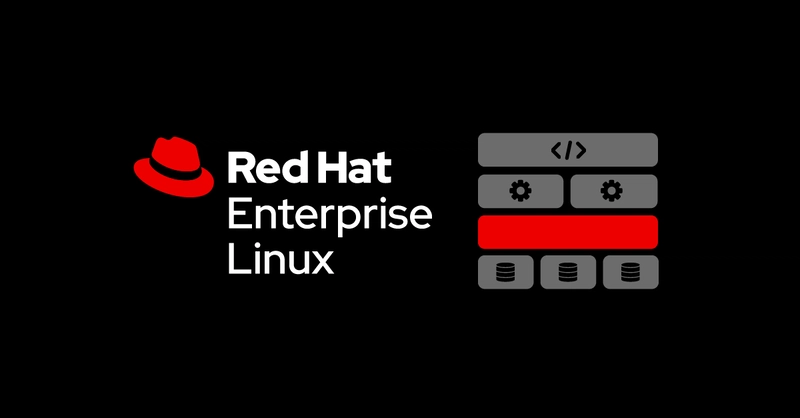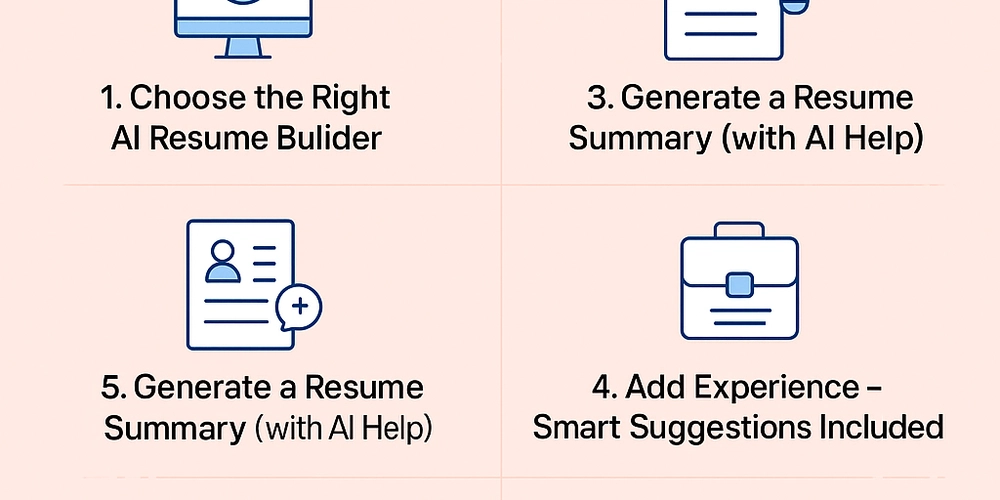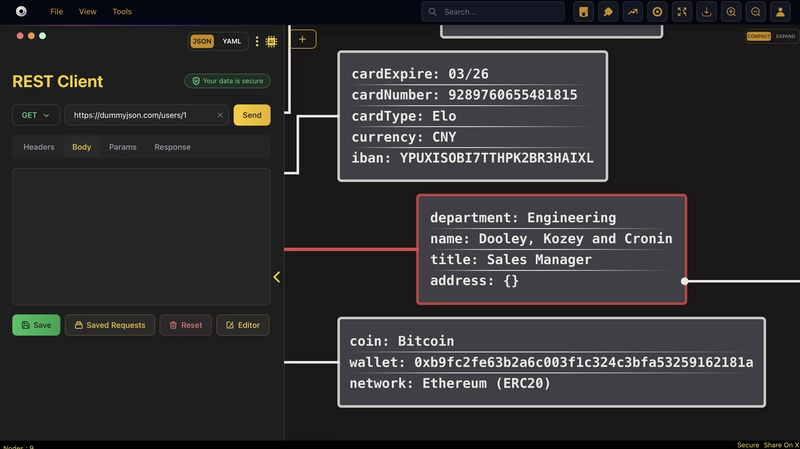Day 1 of My 30-Day Linux Challenge: Why Linux is Awesome
Table of contents My Linux Journey Starts Now Why Linux is So Cool Why Get an RHCSA or RHCE Certificate ? How Linux Got Started Summary Hi friends! I’m starting a fun 30-day Linux challenge to get ready for the RHCSA exam (it’s a certificate for Red Hat skills). Today’s Day 1, and I’m super excited to share why Linux is so cool and how this certificate can help you in IT jobs. I’ll be posting every day during my training, so come along, ask me stuff, or join the challenge! My Linux Journey Starts Now I’ve always wanted to learn more about Linux—it’s the system behind so much tech we use every day! From phones to huge computers, Linux is everywhere. This challenge is my chance to really dig in, practice, and get my RHCSA certificate. On Day 1, I’m learning why Linux is amazing and why getting certified is a great idea. Let’s check it out! Why Linux is So Cool Linux isn’t just a computer system—it’s what makes lots of technology work. Here’s why it’s awesome: It’s Everywhere: Your Android phone uses Linux. So do the world’s fastest big computers (90% of the top 500!). Even airplanes and online stuff like the cloud use it. It’s in everything! Anyone Can Change It: Linux is free for everyone to use or edit. You could even make your own system! For example, Oracle Linux is based on CentOS, which is like Red Hat. Doesn’t Cost Money: You can often get Linux for free, which saves a lot of money. Really Safe: Linux keeps bad things like viruses away because lots of people work together to make it safe. Fast and Easy: It works quickly, even on older computers. Great for Networks: Linux is perfect for connecting computers, like for big company servers. Super Steady: It doesn’t crash a lot and can do many things at once without slowing down. Linux helps with cool things like AI and the cloud—it’s a big deal! Why Get an RHCSA or RHCE Certificate ? Getting these certificates can help you get awesome IT jobs. Here’s why I’m going for them: You’ll Stand Out: People with RHCSA or RHCE almost always have jobs—check LinkedIn! Other certificates are common, but Red Hat ones make you special. Big Companies Love It: Red Hat’s system (called RHEL) is used by huge companies because it’s super reliable. Grow Your Skills: RHCSA teaches you how to manage Linux systems. RHCE teaches you even more, like how to automate stuff. They’re steps to get better at IT. Red Hat, which is now part of IBM, makes RHEL for businesses, so these certificates are a smart choice. It shows you can handle Linux for real jobs. How Linux Got Started The story of Linux is so neat! Here’s the short version: It Comes from Unix: Linux is part of the Unix family, a group of systems like it. A Student Made It: In 1991, a student named Linus Torvalds, who was at the University of Helsinki in Finland, made Linux just for fun. Shared It with the World: On September 17, 1991, Linus shared the first version (Linux 0.01) online with a group called Minix. From there, it grew huge! It’s amazing how one person’s hobby became something so big! Who’s Red Hat? Red Hat is a big company, kind of like Microsoft, but for Linux. Here’s what you need to know: Started in 1993: They’re based in Raleigh, North Carolina, and have offices all over the world. Makes RHEL: Red Hat Enterprise Linux (RHEL) is their version of Linux, made for companies to use safely. Big businesses trust RHEL, which is why I’m learning it for my certificate. Summary Linux is the backbone of modern tech. It powers servers, supercomputers, smartphones, and the cloud. Open-source, secure, and efficient—it’s built for performance. Learning Linux will help you stand out in the job market with in-demand, real-world skills. I’d love to hear your thoughts, experiences, or tips about Linux! Feel free to share in the comments and join the conversation. Let’s connect and learn together—connect with me on https://www.linkedin.com/in/olatundesalami/ ! 30dayslinuxchallenge #cloudcomputing #redhat #networking #Linux

Table of contents
My Linux Journey Starts Now
Why Linux is So Cool
Why Get an RHCSA or RHCE Certificate ?
How Linux Got Started
Summary
Hi friends! I’m starting a fun 30-day Linux challenge to get ready for the RHCSA exam (it’s a certificate for Red Hat skills). Today’s Day 1, and I’m super excited to share why Linux is so cool and how this certificate can help you in IT jobs. I’ll be posting every day during my training, so come along, ask me stuff, or join the challenge!
My Linux Journey Starts Now
I’ve always wanted to learn more about Linux—it’s the system behind so much tech we use every day! From phones to huge computers, Linux is everywhere. This challenge is my chance to really dig in, practice, and get my RHCSA certificate. On Day 1, I’m learning why Linux is amazing and why getting certified is a great idea. Let’s check it out!
Why Linux is So Cool
Linux isn’t just a computer system—it’s what makes lots of technology work. Here’s why it’s awesome:
It’s Everywhere: Your Android phone uses Linux. So do the world’s fastest big computers (90% of the top 500!). Even airplanes and online stuff like the cloud use it. It’s in everything!
Anyone Can Change It: Linux is free for everyone to use or edit. You could even make your own system! For example, Oracle Linux is based on CentOS, which is like Red Hat.
Doesn’t Cost Money: You can often get Linux for free, which saves a lot of money.
Really Safe: Linux keeps bad things like viruses away because lots of people work together to make it safe.
Fast and Easy: It works quickly, even on older computers.
Great for Networks: Linux is perfect for connecting computers, like for big company servers.
Super Steady: It doesn’t crash a lot and can do many things at once without slowing down.
Linux helps with cool things like AI and the cloud—it’s a big deal!
Why Get an RHCSA or RHCE Certificate ?
Getting these certificates can help you get awesome IT jobs. Here’s why I’m going for them:
You’ll Stand Out: People with RHCSA or RHCE almost always have jobs—check LinkedIn! Other certificates are common, but Red Hat ones make you special.
Big Companies Love It: Red Hat’s system (called RHEL) is used by huge companies because it’s super reliable.
Grow Your Skills: RHCSA teaches you how to manage Linux systems. RHCE teaches you even more, like how to automate stuff. They’re steps to get better at IT.
Red Hat, which is now part of IBM, makes RHEL for businesses, so these certificates are a smart choice. It shows you can handle Linux for real jobs.
The story of Linux is so neat! Here’s the short version:
It Comes from Unix: Linux is part of the Unix family, a group of systems like it.
A Student Made It: In 1991, a student named Linus Torvalds, who was at the University of Helsinki in Finland, made Linux just for fun.
Shared It with the World: On September 17, 1991, Linus shared the first version (Linux 0.01) online with a group called Minix. From there, it grew huge!
It’s amazing how one person’s hobby became something so big!
Who’s Red Hat?
Red Hat is a big company, kind of like Microsoft, but for Linux. Here’s what you need to know:
Started in 1993: They’re based in Raleigh, North Carolina, and have offices all over the world.
Makes RHEL: Red Hat Enterprise Linux (RHEL) is their version of Linux, made for companies to use safely.
Big businesses trust RHEL, which is why I’m learning it for my certificate.
Linux is the backbone of modern tech.
It powers servers, supercomputers, smartphones, and the cloud.
Open-source, secure, and efficient—it’s built for performance.
Learning Linux will help you stand out in the job market with in-demand, real-world skills.
I’d love to hear your thoughts, experiences, or tips about Linux!
Feel free to share in the comments and join the conversation.
Let’s connect and learn together—connect with me on https://www.linkedin.com/in/olatundesalami/ !




























![[Webinar] AI Is Already Inside Your SaaS Stack — Learn How to Prevent the Next Silent Breach](https://blogger.googleusercontent.com/img/b/R29vZ2xl/AVvXsEiOWn65wd33dg2uO99NrtKbpYLfcepwOLidQDMls0HXKlA91k6HURluRA4WXgJRAZldEe1VReMQZyyYt1PgnoAn5JPpILsWlXIzmrBSs_TBoyPwO7hZrWouBg2-O3mdeoeSGY-l9_bsZB7vbpKjTSvG93zNytjxgTaMPqo9iq9Z5pGa05CJOs9uXpwHFT4/s1600/ai-cyber.jpg?#)













































































































































![[The AI Show Episode 144]: ChatGPT’s New Memory, Shopify CEO’s Leaked “AI First” Memo, Google Cloud Next Releases, o3 and o4-mini Coming Soon & Llama 4’s Rocky Launch](https://www.marketingaiinstitute.com/hubfs/ep%20144%20cover.png)




































































































































































































![Rogue Company Elite tier list of best characters [April 2025]](https://media.pocketgamer.com/artwork/na-33136-1657102075/rogue-company-ios-android-tier-cover.jpg?#)








































































_Andreas_Prott_Alamy.jpg?width=1280&auto=webp&quality=80&disable=upscale#)




























































































![What’s new in Android’s April 2025 Google System Updates [U: 4/18]](https://i0.wp.com/9to5google.com/wp-content/uploads/sites/4/2025/01/google-play-services-3.jpg?resize=1200%2C628&quality=82&strip=all&ssl=1)










![Apple Watch Series 10 Back On Sale for $299! [Lowest Price Ever]](https://www.iclarified.com/images/news/96657/96657/96657-640.jpg)
![EU Postpones Apple App Store Fines Amid Tariff Negotiations [Report]](https://www.iclarified.com/images/news/97068/97068/97068-640.jpg)
![Apple Slips to Fifth in China's Smartphone Market with 9% Decline [Report]](https://www.iclarified.com/images/news/97065/97065/97065-640.jpg)




































































































































